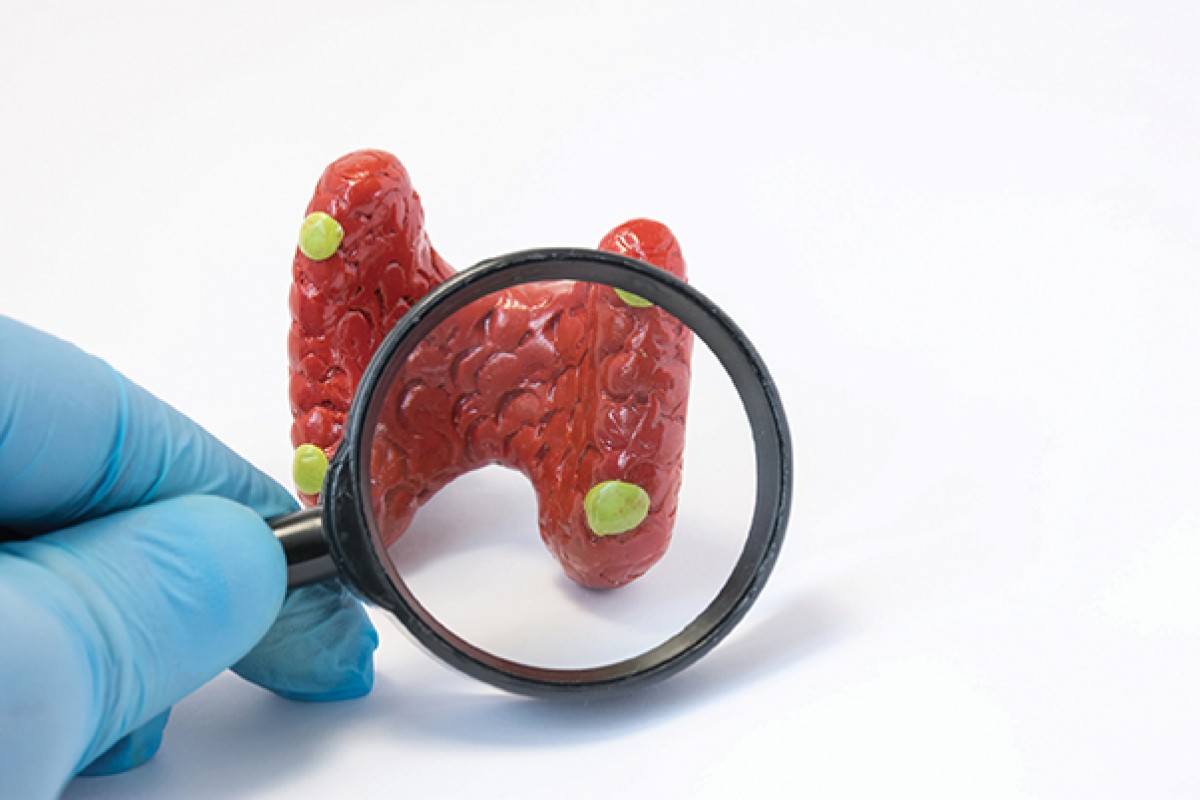
Effects of vitamin D and vitamin B12 on Hashimoto Thyroiditis
By Raffaella Quieti Cartledge
Effects of vitamin D and vitamin B12 on Hashimoto Thyroiditis
A 2019 study investigated levels of vit.D and vit.B12 in patients with autoimmune hypothyroidism and evaluated their correlation with anti-TPO antibodies.
Hashimoto thyroiditis (HT) is the most common cause of hypothyroidism, a disease caused by inadequate synthesis and/or release of thyroid hormones.
In these patients, hypothyroidism is accompanied by the presence of autoantibodies. It is more common in the 30- to 50-year-old age group and is 4–10 times more common in women than in men.
Environmental (30%) and genetic (70%) factors influence the genesis of HT. The possible environmental factors are smoking, alcohol, dietary iodine, stress, selenium, vitamin D (vit.D) deficiency, bacterial and viral infections, pregnancy, and drugs.
The main function of vit.D is to achieve calcium and phosphorus balance with bone metabolism. In recent years, however, vit.D has been reported to have a role in the formation of autoimmune diseases, heart diseases, cancer, inflammatory bowel diseases, diabetes, and rheumatologic diseases, as well as its effects on bone metabolism.
In addition, it is thought that vit.D may play a role in the regulation of the immune system because vit.D receptors are detected on cells of the immune system. In some studies, a relationship between vit.D deficiency and autoimmune thyroid diseases such as HT and Grave’s disease has been reported, and impaired vit.D signalling has been reported in thyroid cancers.
Many autoimmune diseases, such as pernicious anaemia, myasthenia gravis, celiac disease, type 1 diabetes mellitus, autoimmune liver diseases, multiple sclerosis, Addison’s disease, rheumatoid arthritis, and systemic lupus erythematosus, may accompany HT.
Vitamin B12 deficiency has been reported frequently in autoimmune thyroid patients. This association is probably due to impaired absorption of vit.B12 by atrophic gastritis and/or pernicious anaemia associated with autoimmune thyroid disease. Atrophic gastritis is an inherited autoimmune disease that attacks parietal cells, resulting in hypochlorhydria and decreased production of intrinsic factor. Consequences include atrophic gastritis, B12 malabsorption, and this condition is also seen in 35 to 40% of autoimmune thyroid diseases. There are several studies suggesting that the prevalence of vit.D deficiency is high in patients with HT and that there is a relationship between hypothyroidism and vit.D in these patients.
In his 2019 study, Dr Hanife Serife Aktas, found a negative correlation between vit.D levels and anti-TPO levels in these patients, bringing him to the conclusion that vit.D deficiency may cause autoimmune hypothyroidism.
The relationship between vit.D deficiency and thyroid autoimmunity remains unclear. However, it is suggested that vit.D may be associated with anti-inflammatory and immunomodulatory effects. Vit.D plays a significant role in modulation of the immune system.
In his study, Dr Aktas found that the incidence of vit.B12 deficiency in autoimmune hypothyroid patients was 46%. They also found that there was a negative correlation between the presence of anti-TPO antibodies and vit.B12 levels. It is possible that this may be due to pernicious anaemia or atrophic gastritis accompanying autoimmune hypothyroidism, which is often accompanied by other autoimmune diseases.
Patients with both hypothyroidism and vit.B12 deficiency also have similar symptoms. Symptoms such as fatigue, weakness, dementia, depression, memory impairment, lethargy, and tingling are frequently seen in patients with hypothyroidism and vit.B12 deficiency. Thus, vit.B12 deficiency may be ignored in hypothyroidism.
Vit.B12 deficiency increases homocysteine levels and a relationship is known to exist between hyperhomocysteinemia and the development of atherosclerosis. Several studies have shown a relationship between hypothyroidism and homocysteine levels. Thus, if vit.B12 deficiency is overlooked in hypothyroid patients it may increase cardiovascular risk through hyperhomocysteinemia.
In this study, vit.B12 and vit.D deficiency was found to be prevalent in patients with HT.
In patients with autoimmune hypothyroidism at the time of diagnosis and during periodic follow-ups, genetic snps should be investigated (such as MTHFR) together with Vit.D, vit.B9 and vit.B12 deficiency. Also antibody levels (Anti-TPO and Anti-thyrogobulin antibodies) and homocystine levels should be verified and supplementation should be performed in those who need it.










